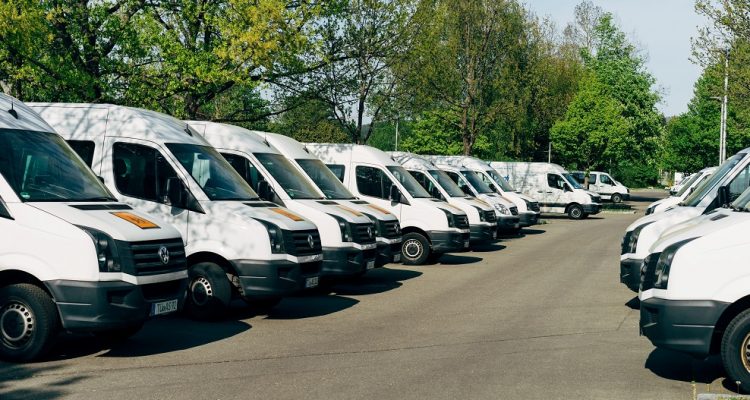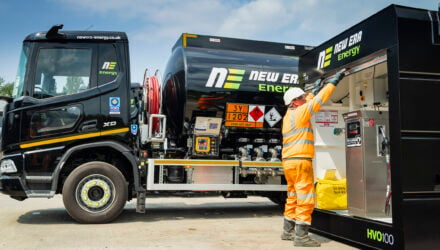The UK’s second-hand automotive market could well serve as a case study on topsy-turvy markets that have seemingly become the norm amid all the global uncertainty, with prices of second-hand cars now in many cases exceeding those of new ones.
Supply chain bottlenecks and a sharp rise in fuel prices distorted the market fundamentals behind the highly unusual state of the second-hand car market. It is contributing to inflationary pressures and market malfunction, but it is also something that could be mitigated if not fixed with a rethink of the actual marketplace.
In the year to February, used car prices rose 32%, according to Auto Trader UK, with more than one in five (21%) of the nearly new cars currently available (those aged up to 12 months) more expensive than their brand-new equivalents. No less remarkable was that an average of 17,045 vehicles in forecourts were repriced every day in February, with 2,424 retailers saying they made daily price adjustments.[1]
The price rises inversely correspondent with the drop in sales due to a shortage of supply. Car manufacturing in the UK totalled 68,790 in January, down 42% from January 2020, just before the pandemic hit. Registrations in January were 115,087, down 23% from a couple of years earlier.[2] February posted a 26% drop since February 2020 to 58,994 vehicles.
It is an extraordinary situation driven by a big shortage of new and nearly new cars, caused by supply chain bottlenecks and a global shortage of semiconductors. Car buyers unable or unwilling to wait for a brand-new car to become available are a factor, too.
Alternative fuel vehicle sales exceed petrol-fuelled cars in December
Interestingly, the surge in demand for electric vehicles (EVs) and alternative fuel vehicles (AFVs) far exceeds that for conventional combustion engine cars. For the first time, in December, monthly sales of AFVs exceeded that of regular petrol-fuelled cars by over 2,600 cars, with sales of 44,732.[3]
The growth of ultra-low emissions zones in cities around the country, along with the clock ticking down towards 2030, when new diesel- and petrol-fuelled cars will no longer be permitted for sale in the UK, has spurred purchases. Interest in EVs will have risen following the recent spike in petrol prices.
Yet the disjointed market dynamic means that no matter what type of car is sought, motorists have struggled to source vehicles in a cost-efficient way. Take a closer look and it is apparent that change is afoot that will benefit distributors, sellers and consumers. The current market pressures are bringing about transformation towards new digital tools for selling vehicles.
Online B2B marketplaces are driving the evolution of the second-hand car market, allowing for greater competition, liquidity, wider distribution networks and easier price discovery, alongside data-driven insights that benefit buyers, sellers and marketplace owners alike.
For those in the EV space, online marketplaces offer transparency, information and elements of price discovery not readily available before. Given the surging prices of raw materials for EV batteries, a better understanding of options available, along with prices and availability, could make a noticeable difference to the cost of car. By extension it can help more transactions to complete.
Digital B2B marketplaces can help address EV and AFV market imbalances
The more sophisticated online marketplaces help mitigate the effect of shortages and market disruption. For example, NovaFori has developed an auction platform for the B2B used car sales market, allowing sellers to remain competitive across various countries and enabling 24/7 trading for thousands of concurrent bidders.
The online marketplace extend to include access to an integrated inventory of thousands of vehicles, meaning professional buyers can browse and purchase vehicles.
The platform uses data science to implement recommendations based on historical buyer behaviour patterns. Recommendations can also be refined based on substitutions and bids won, resulting in a superior customer experience.
Trade volumes are higher, there is greater liquidity, and both the marketplace and sellers on the platform can generate more revenue. Professional traders can bid on a wide variety of cars in multiple languages across multiple regions in Europe. As a result of the combination of auction mechanisms and cross-border trade, marketplaces can deliver demonstrably higher prices.
As demand for AFVs and EVs grows against a backdrop of a scarcity of supply and long waiting lists, digital platforms can play an invaluable role. Additionally, recommendation engines can most efficiently satisfy latent demand.
These are not just powerful tools for buyers and sellers, but they help marketplace owners sharpen sales channels to foster marketplace optimisation. With such valuable user-based activity data captured, it is possible for marketplace owners to maintain relationships with buyers and re-engage them in the future to grow the marketplace.
While there are no overnight fixes to the current market distortions, digital B2B marketplaces do offer a means to bring transparency, liquidity and efficiency to the second-hand automotive market in which the pressure of high demand for EVs and AFVs will remain a factor for the foreseeable future.
Author: Phil Bird, Executive Director, NovaFori
[1] https://plc.autotrader.co.uk/press-centre/news-hub/retail-price-index-february-2022/
[2] https://www.smmt.co.uk/2022/02/supply-chain-shortages-squeeze-january-car-output-but-ev-surge-brightens-outlook/
[3] https://plc.autotrader.co.uk/press-centre/auto-trader-retail-price-index/







